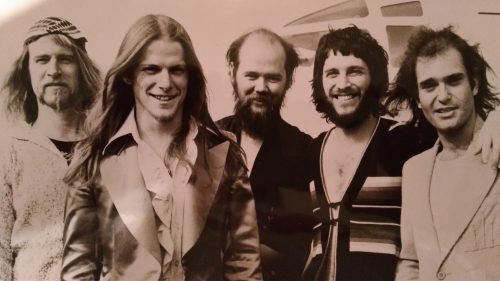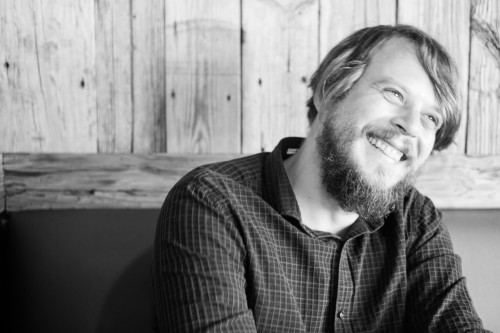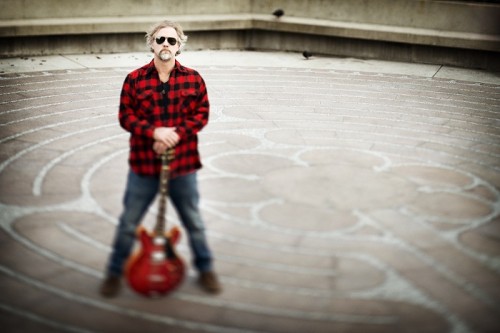The Dixie Dregs were seemingly an exercise in how not to be successful in the music business. Five guys playing complex, southern-flavored rock music. Or was it jazz? And oh yeah, there was no singer.
“We knew early on that it was going to be not popular and there was no place in record stores for us,” recalls Dregs guitarist Steve Morse. “There was no bin to put the albums in if we did have an album, other than ‘new releases,’ and that only works for a few weeks. It was a word-of-mouth thing.”
The virtuoso group built a dedicated fanbase that counted many a future rock star among its ranks. That audience is getting a wish 40 years in the making as the classic lineup — Morse, bassist Andy West, violinist Allen Sloan, keyboardist Steve Davidowski and drummer Rod Morgenstein — is back together again after four decades of hiatuses and a multitude of lineup changes.
The Dregs’ reunion tour includes stops at the Scottish Rite Auditorium in Collingswood, N.J., near Philadelphia (March 9), the Capitol Theatre in Port Chester, N.Y. (March 12) and Town Hall in New York City (March 16).
“I think it was just the case that we could do it,” says Morse, also the long-standing lead guitarist for classic rock juggernaut Deep Purple, when asked why the classic Dregs got back together. “We didn’t know we had Steve Davidowski available; he was kind of off the grid to us.”
The quintet’s chemistry immediately came flowing back when the musicians began rehearsals. But with so much time gone by, we couldn’t help but wonder if any personal issues had to be ironed out before the music could be worked on.
“I don’t think so,” Morse shares. “Unless somebody’s hiding something. I think everybody has their different sort of, like, lives. And different careers, in some cases. But everyone had a common goal.”
To chase that goal, some sacrifices had to be made. For instance, Sloane, a medical doctor, was willing to set up a plan to refer clients from his pain clinic to other providers. “That’s kind of a big deal,” Morse says.
The shows, he says, will feature a cross-section of Dregs favorites, including the majority of “Free Fall,” the band’s second album, released in 1977.
The Dregs, first formed in Georgia as Dixie Grit, came together after Morse met West at the fertile music program at the University of Miami, which also boasted future stars like Jaco Pastorius, Pat Metheny and Bruce Hornsby. The word of mouth that Morse cites paid off when two early fans, Allman Brothers Band pianist Chuck Leavell and ABB road manager Twiggs Lyndon, helped the Dregs land a record deal with Capricorn.
“All the signs were ‘this is not the way to do it.’ However, when we played, people would smile and get energetic and come back and bring people that they knew, so on that front everything was looking good,” says Morse.
The band’s all-over-the-place musical approach might have prevented it from cracking through to the mainstream. That breadth of influences and skills is evident in the individual players’ resumes, ranging from Morgenstein’s membership in pop metal’s Winger to late Dregs keyboardist T Lavitz’s run with jam band Widespread Panic to West’s work with Frank Zappa guitarist Mike Keneally to Sloane’s work in classical music.
“Yeah, there’s diversity there, there’s no doubt about it,” More says, laughing. “Most of us went to music schools and all the people who were in the Dregs were very open minded about styles and saw each style as similar to everything else but a challenge to try to get some personality of each style and to enjoy it. It was just natural to mix things.”
Looking back on the Dregs’ heyday, Morse is asked to tick off some favorite moments. But instead, he takes a big-picture view.
“I think there was just a general great vibe and goodwill with the people who came to the shows,” the guitarist remembers. “And I feel like we pretty much shook the hands of the vast majority of the people who came to see us. We started in cities playing to 10 people and we’d sleep on people’s floors. We brought peanut butter and loaves of bread in our suitcases.”
While the music industry never quite caught on to the Dregs, music lovers did.
“All the signs were ‘this is not the way to do it,’” Morse says. “However, when we played, people would smile and get energetic and come back and bring people that they knew, so on that front everything was looking good.”




Leave a Reply